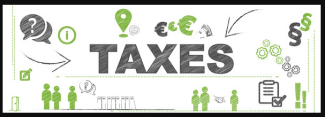
2018 Year End Financial Planning
image credit: lecoindesentrepreneurs
Planning will be different than years prior following the first full year after the implementation of the Tax Cuts and Jobs Act.
As consumers begin thinking about year-end financial planning, it’s important to address the changes brought about by the Tax Cuts and Jobs Act (TCJA) that will affect every American differently. The good news is that for millions of Americans, the new code should make filing easier since nearly 90 percent of taxpayers are likely to claim the standard deduction this year.
A good place to start is by reviewing last year’s returns and determine two very important factors: how your 2018 and 2019 income compare with 2017 and if you’re likely to itemize or take the new, higher standard deduction based on last year’s deductions.
Whether you choose to itemize or claim the standard deduction, here are some helpful tips to make the most of your money with the new protocols in place:
- Itemize Deductions in Bunches: Many itemized deductions are no longer, including unreimbursed employee expenses, tax preparation fees, job search expenses and more. The change in itemized deductions makes the concept of “bundling” deductions much more important—if you can bunch future itemized items into one year, you may be able to itemize again.
- To Claim or Not to Claim Standard Deductions: For those claiming the standard deduction or have higher income in 2018 than they will next year, the best way to reduce your tax liability is to maximize your retirement plan contributions. If your income has stayed the same or decreased this year, you may have a unique opportunity to execute a full or partial Roth IRA conversion, when you pay taxes at today’s rates, rather than wait until later in life when you may be in a higher bracket.
- Accelerate Planned Charitable Contributions: The tax law is expected to reduce the marginal tax benefit of giving to charity by more than one-quarter in 2018, but if you give one lump sum representing your gifts for the next few years, you may recapture the tax benefit. One easy way to accomplish this is by establishing a donor advised fund (DAF), which allows you to make multiple years’ worth of charitable contributions up front.
For more guidance on year-end financial planning, talk to a CERTIFIED FINANCIAL PLANNER™ professional today or visit www.letsmakeaplan.org
ABOUT CFP BOARD
Certified Financial Planner Board of Standards, Inc. is a professional body for personal financial planners in the U.S. CFP Board sets standards for financial planning and administers the prestigious CFP® certification – one of the most respected certifications in financial services – so that the public has access to and benefits from competent and ethical financial planning. CFP Board, along with its Center for Financial Planning, is committed to increasing the public’s awareness of CFP® certification and access to a diverse, ethical and competent financial planning workforce. Widely recognized by firms as the standard for financial planning, CFP® certification is held by over 82,000 people in the United States
Blue Ocean Global Wealth intends the contents of this article will be viewed for informational and educational purposes only. The information in this article is not intended as tax, legal, or investment advice. It may not be used for the purpose of avoiding any federal tax penalties. Please consult legal or tax professionals for specific information regarding your individual situation. The opinions expressed and information provided are for general purposes only, and should not be considered a solicitation for the purchase or sale of any security or investment.
Images, content, and published articles are for reference and illustrative purposes only. Under no circumstances should any image, logo, content or article be viewed as an endorsement. This article is for educational purposes only. Under no circumstances should the information provided herein be relied upon as legal, tax, or investment advice.

